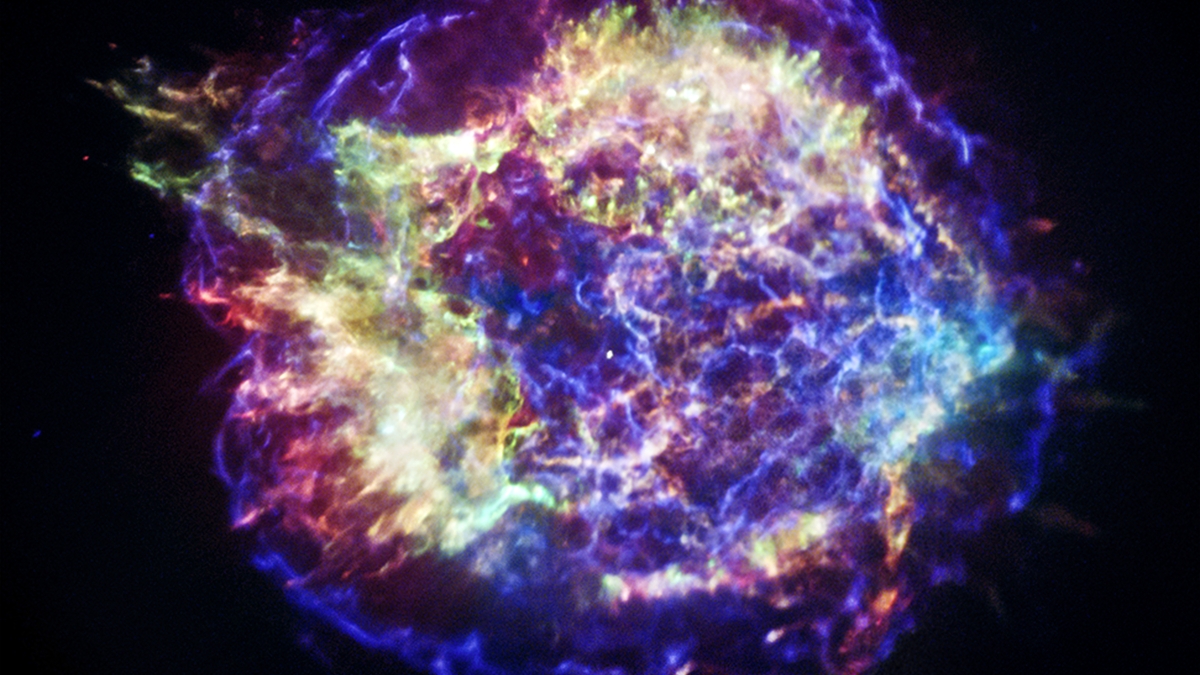Cosmic catastrophes featured at ASU Earth & Space Open House

A composite image of the Cassiopeia A supernova remnant from the Hubble Space Telescope, Spitzer Space Telescope and Chandra X-ray Observatory. Photo by NASA
The universe is a dangerous place. Join Arizona State University’s School of Earth and Space Exploration from 7 to 10 p.m. Friday, April 8, for the final Earth & Space Open House of the spring semester as we explore exploding stars, black holes, impact events and many other cosmic catastrophes.
The evening’s keynote speaker is ASU astrophysicist and associate professor Patrick Young, who will be presenting “The Dying of the Light: Magnificent Deaths of Massive Stars” in 3-D.
In addition, the open house will feature telescope viewing, a comet and solar systems impacts demo, a 3-D planetarium show, meteorite exhibits, and interactive demonstrations and exhibits in astrobiology, earthquakes, meteorites, geology, cosmology and more.
7:15 p.m. First 3-D planetarium show (Marston Exploration Theater)
8:45 p.m. Keynote lecture by Patrick Young, “The Dying of the Light: Magnificent Deaths of Massive Stars” (Marston Exploration Theater)
8-10 p.m. Telescope Viewing (weather permitting)
The evening's events are all free and open to the public. All activities are located in the Interdisciplinary Science and Technology Building IV (ISTB 4) on ASU’s Tempe campus.
All seating in the Marston Exploration Theater is on a first-come, first-seated basis, and the theater will be cleared after each event.
For more information, visit openhouse.sese.asu.edu or visit the school's Facebook event page.
The monthly open house is sponsored by ASU’s School of Earth and Space Exploration, Altair Rocketry, GeoClub, AstroDevils: ASU Astronomy Club, Icarus Rocketry, Students for the Exploration and Development of Space, the Center for Meteorite Studies, NASA Space Grant, Society of Physics Students, Students for the Exploration and Development of Space, and many others.
More Science and technology
Large-scale study reveals true impact of ASU VR lab on science education
Students at Arizona State University love the Dreamscape Learn virtual reality biology experiences, and the intense engagement it…

ASU-led space telescope is ready to fly
The Star Planet Activity Research CubeSat, or SPARCS, a small space telescope that will monitor the flares and sunspot activity…

ASU at the heart of the state's revitalized microelectronics industry
A stronger local economy, more reliable technology, and a future where our computers and devices do the impossible: that’s the…

